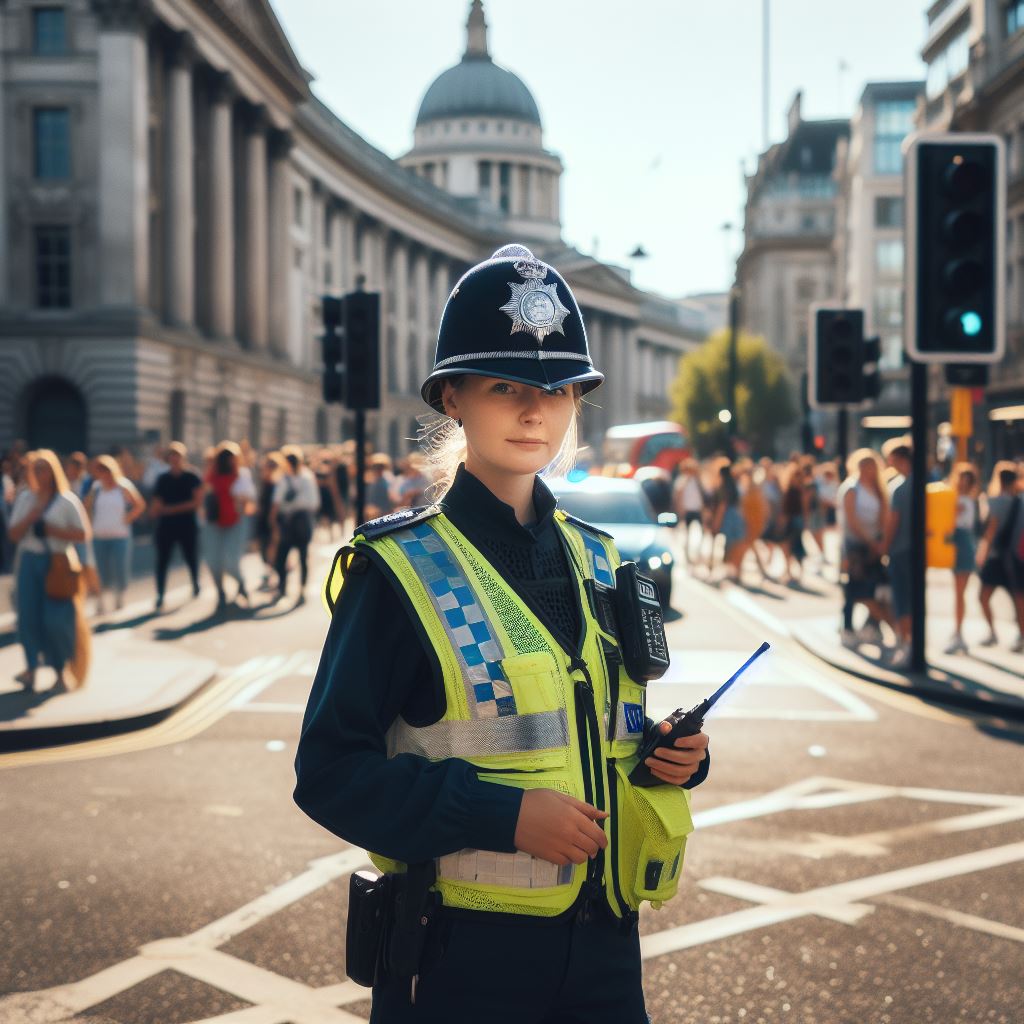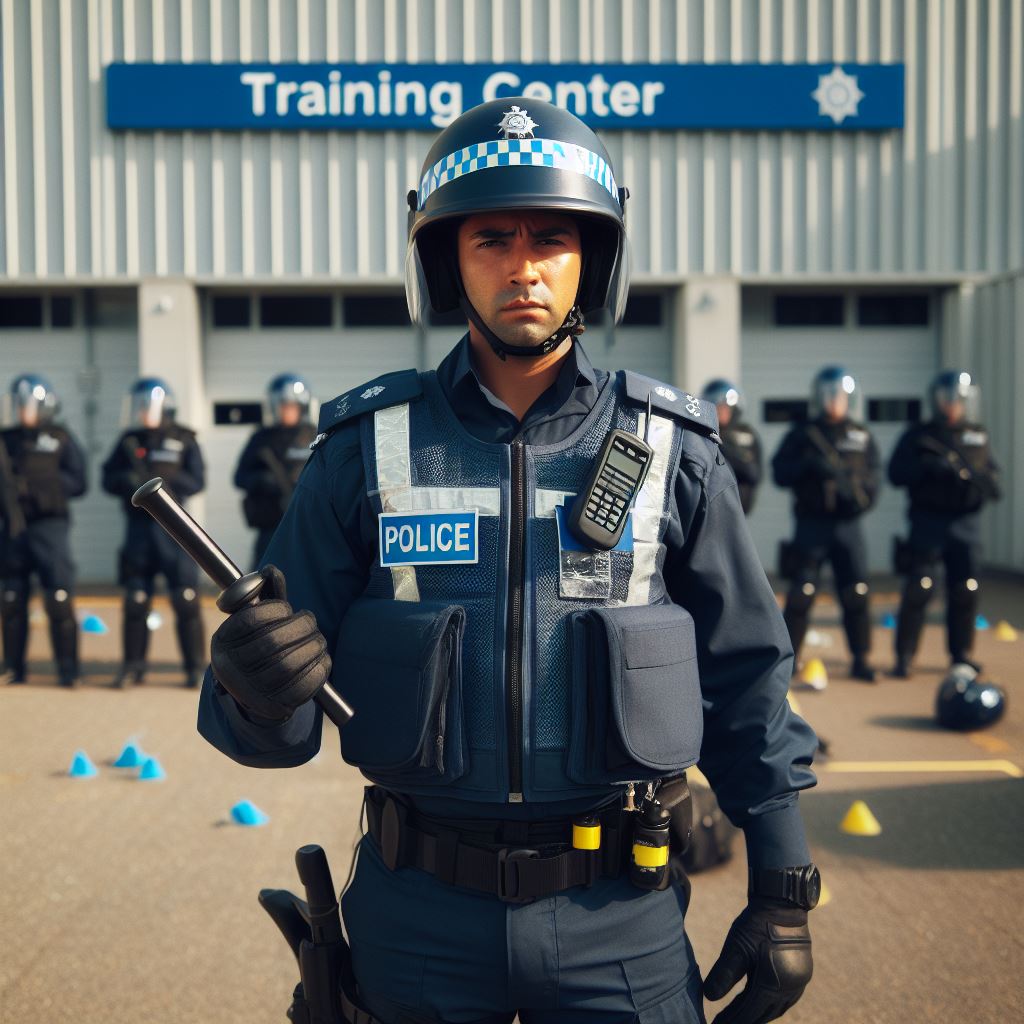Introduction
A diplomat is an individual who represents their country in international negotiations and maintains diplomatic relations.
Diplomats play a crucial role in fostering cooperation and resolving conflicts in international relations.
To become a diplomat in the UK, one must follow a specific career path and meet certain requirements.
Firstly, aspiring diplomats in the UK need to obtain a university degree in a relevant field such as international relations or political science.
They should excel academically and participate in extracurricular activities that showcase their leadership and interpersonal skills.
After completing their degree, candidates must undertake the Foreign and Commonwealth Office (FCO) Diplomatic Fast Stream program.
This highly competitive program offers intensive training, including language studies, diplomatic history, and negotiation skills.
Successful candidates progress through different levels, gaining practical experience by working in various government departments, both in the UK and abroad.
They may serve in political, economic, or consular roles, developing expertise in specific regions or issues.
In addition to the initial training program, continuous professional development is crucial for diplomats in the UK.
They must stay informed about global affairs, attend workshops and conferences, and maintain proficiency in foreign languages.
To become a fully-fledged diplomat, candidates need to pass a series of assessments and interviews.
The final step is obtaining security clearance and being assigned to a diplomatic mission abroad as a full-time diplomatic officer.
Becoming a diplomat in the UK requires dedication, a solid educational background, and practical training.
Diplomats play a vital role in representing their country’s interests and promoting peaceful and productive international relations.
Education and Qualifications for a Career as a Diplomat in the UK
In order to pursue a career as a diplomat in the United Kingdom, there are certain educational qualifications and skills that are required. These are essential for individuals who aspire to work in the field of diplomacy.
University Degree Requirement
One of the primary requirements for becoming a diplomat in the UK is the completion of a university degree. This is a crucial step towards building a strong foundation in the field of diplomacy.
Relevant Fields of Study for Aspiring Diplomats
Aspiring diplomats should consider pursuing degrees in fields such as international relations, political science, economics, or law. These areas of study provide a solid understanding of global affairs and politics.
Importance of Foreign Language Proficiency
A key aspect of being a diplomat is the ability to communicate effectively with individuals from different cultures and backgrounds. Therefore, proficiency in foreign languages is highly valued in the diplomatic field.
Additional Certifications or Qualifications
In addition to a university degree, diplomats may be required to obtain certifications or qualifications in specific areas. These certifications can vary depending on the needs of the diplomatic service.
Competencies and Skills Needed in the Field of Diplomacy
To succeed as a diplomat, certain competencies and skills are necessary.
These include excellent communication and negotiation skills, cultural sensitivity, adaptability to different environments, and the ability to analyze complex political situations.
Essentially, a strong educational background and a range of skills are required to become a diplomat in the UK.
Obtaining a university degree in a relevant field, having proficiency in foreign languages, and possessing additional certifications or qualifications are essential steps in pursuing a successful career in diplomacy.
Entry Level Positions
Available entry-level positions in the UK Foreign and Commonwealth Office (FCO)
When starting a career as a diplomat in the UK, there are several entry-level positions within the UK Foreign and Commonwealth Office (FCO) that aspiring diplomats can consider.
These positions provide a solid foundation for individuals who are passionate about international relations and diplomacy.
One of the available entry-level positions is as a Diplomatic Service Officer.
In this role, individuals assist in promoting and protecting the UK’s interests internationally.
They may be assigned to specific geographic regions or work on specific areas of policy.
Diplomatic Service Officers play a crucial role in representing the UK and fostering relationships with other countries.
Another entry-level position is as a Consular Officer.
Consular Officers focus on protecting the welfare and interests of British nationals abroad.
They help citizens in distress, issue visas, and provide general assistance to British nationals in foreign countries.
Consular work requires strong interpersonal skills and the ability to handle challenging situations.
Responsibilities and tasks of entry-level diplomats
Entry-level diplomats within the FCO have various responsibilities and tasks.
They may be involved in analysis and research, assisting in drafting policy documents, and providing logistical and administrative support.
These tasks are essential in supporting the work of senior diplomats and ensuring the smooth functioning of diplomatic initiatives.
Importance of gaining practical experience in international affairs
One of the most crucial aspects of becoming a successful diplomat is gaining practical experience in international affairs.
Entry-level positions offer opportunities to work on real-world diplomatic challenges, allowing individuals to develop essential skills and knowledge in the field.
Practical experience provides a solid foundation for career growth and advancement in the diplomatic service.
Networking opportunities within the field
Networking is also vital for aspiring diplomats.
Building connections within the field can open doors to various opportunities and provide valuable insights into the intricacies of diplomacy.
Entry-level diplomats have the chance to meet and interact with experienced diplomats, attend conferences and events, and participate in diplomatic training programs.
These networking opportunities can greatly enhance professional development and broaden one’s understanding of the diplomatic landscape.
Generally, entry-level positions within the UK Foreign and Commonwealth Office offer aspiring diplomats a pathway into the world of diplomacy.
These positions provide hands-on experience, responsibility, and networking opportunities.
Whether working as a Diplomatic Service Officer or a Consular Officer, entry-level diplomats play a crucial role in promoting and protecting the UK’s interests abroad.
Gaining practical experience and building networks are essential steps towards a successful diplomatic career.
Read: Interview Tips for UK Civil Service
Diplomatic Service Fast Stream
Overview of the Fast Stream program in the UK
The Diplomatic Service Fast Stream is a prestigious program in the UK that offers a unique career path to becoming a diplomat.
It is a highly competitive and rigorous program designed to select and train the best candidates for diplomatic roles.
Fast Stream diplomats are responsible for representing the UK overseas, promoting British interests, and providing services to British nationals abroad.
They play a crucial role in maintaining international relations and fostering cooperation between nations.
Personalized UK Career Consulting
Receive tailored career guidance designed just for you. Get actionable steps and expert support to boost your career in 1-3 days. Take control of your career now.
Get StartedApplication and selection process for the Fast Stream
The application process for the Fast Stream is divided into several stages, each designed to assess the candidates’ suitability for the role.
It begins with an online application, followed by various assessments, interviews, and a final selection board.
The selection process is rigorous and comprehensive, evaluating candidates’ analytical skills, communication abilities, leadership potential, and cultural awareness.
Successful candidates are chosen based on their performance throughout the selection process and their potential to excel in diplomatic roles.
Training and development opportunities for Fast Stream diplomats
Once selected, Fast Stream diplomats undergo extensive training to equip them with the necessary skills and knowledge for their diplomatic careers.
The training focuses on various aspects, including diplomacy, protocol, negotiation, languages, and political analysis.
Fast Stream diplomats also have the opportunity to rotate through different government departments, both in the UK and overseas.
This exposure to various areas of work helps them gain a broader understanding of the UK’s foreign policy and develop a diverse skill set.
Furthermore, Fast Stream diplomats have access to a range of development opportunities, including regular mentoring, coaching, and networking events.
They are encouraged to build relationships with senior diplomats and professionals from other countries, facilitating their growth and development in the field.
Advantages and benefits of joining the Fast Stream
Joining the Fast Stream offers numerous advantages and benefits to aspiring diplomats. Firstly, it provides a clear and structured career path, allowing individuals to progress rapidly within the diplomatic service.
Furthermore, Fast Stream diplomats have the opportunity to make a significant impact on global issues, representing the UK on an international stage and shaping foreign policy.
They have the chance to address global challenges, build relationships, and contribute to the country’s interests and values.
Moreover, Fast Stream diplomats enjoy a competitive salary and attractive benefits package, including pension schemes, healthcare provisions, and various allowances during overseas postings.
The nature of the work also offers a high level of job satisfaction and personal fulfillment.
In a nutshell, the Diplomatic Service Fast Stream in the UK provides a unique and rewarding career path for those aspiring to become diplomats.
The program offers a rigorous selection process, comprehensive training, and a range of development opportunities to groom individuals for diplomatic roles.
It provides a platform to represent the UK abroad, contribute to global issues, and shape international relations.
Read: Salary and Benefits of a UK Diplomat Revealed
Career Progression and Specialization
Within the diplomatic service, there are different career tracks that individuals can pursue based on their interests and skills.
These tracks provide opportunities for promotion and advancement, allowing diplomats to gradually climb the career ladder.
Different career tracks within the diplomatic service
- Political track: Diplomats on this track focus on analyzing and reporting on political developments, negotiating agreements, and representing their country’s interests in political forums.
- Economic track: Diplomats on this track specialize in economic matters, including trade negotiations, promoting investment opportunities, and analyzing economic trends.
- Consular track: Diplomats on this track handle consular matters such as issuing visas, assisting citizens abroad, and providing support during emergencies or crises.
- Cultural track: This track involves promoting cultural exchange and understanding between countries through activities such as organizing cultural events, supporting educational exchanges, and preserving cultural heritage.
- Legal track: Diplomats on this track deal with international law, representing their country’s position in legal disputes, participating in treaty negotiations, and providing legal advice to the government.
Opportunities for promotion and advancement
In the diplomatic service, there are various opportunities for diplomats to advance in their careers.
Advancements can be achieved through performance evaluations, demonstrating leadership skills, and acquiring additional qualifications.
Junior diplomats can progress to more senior positions such as First Secretary, Counsellor, or Minister.
These positions come with increased responsibilities and opportunities to shape foreign policy, influence decision-making, and represent their country at higher levels.
Furthermore, diplomats can aim to become Ambassadors, the highest-ranking diplomatic posts. Ambassadors are tasked with representing their country abroad and overseeing diplomatic missions.
This role requires a deep understanding of international relations, strong negotiation skills, and the ability to build relationships with foreign counterparts.
Your Dream Job Starts with a Perfect CV
Get a tailored CV and cover letter that captures your unique strengths and stands out in your industry. Let us help you make an unforgettable first impression.
Get StartedSpecializations within diplomatic roles
Within each career track, diplomats have the opportunity to specialize in specific areas. For example, within the political track, one can focus on security issues, human rights, or regional affairs.
Specializations allow diplomats to develop expertise and become valuable resources within their respective fields.
It also provides them with the chance to work on complex issues and contribute to policy formulation in their specialized area.
Possibility of international postings and working in embassies
One of the appealing aspects of a career in diplomacy is the possibility of international postings.
Diplomats may be assigned to work in foreign embassies or consulates, offering them the opportunity to experience different cultures, learn new languages, and develop a global perspective.
International postings can be both challenging and rewarding.
They provide diplomats with the chance to forge networks, establish diplomatic relationships, and gain firsthand knowledge of the host country’s political, economic, and cultural landscape.
Additionally, diplomats may also be posted to international organizations, representing their country’s interests in multilateral forums and contributing to global policymaking.
All in all, a career in diplomacy offers a range of career tracks, opportunities for promotion, specialization within roles, and the chance to work in various international settings.
It is a profession that requires a deep commitment to representing one’s country and contributing to international relations.
Read: Languages and Diplomacy: A UK Diplomat’s Guide

Discover More: Salary Insights: Local Gov Officers in the UK
Skills and Qualities of Successful Diplomats
Effective communication and negotiation skills are essential for diplomats to convey messages and resolve conflicts.
Cross-cultural understanding and adaptability allow diplomats to establish rapport and build relationships with individuals from different backgrounds.
Problem-solving and critical thinking abilities enable diplomats to find innovative solutions to complex issues and analyze situations objectively.
Political and diplomatic knowledge is crucial for diplomats to navigate international relations and understand the intricacies of global politics.
Emotional intelligence and resilience are necessary for diplomats to handle high-pressure situations, manage stress, and maintain professionalism.
Effective Communication and Negotiation Skills
Successful diplomats possess excellent communication and negotiation skills that allow them to express their thoughts clearly and persuasively.
Optimize Your LinkedIn for Success
Boost your LinkedIn profile with a professional bio, keyword-rich headline, and strategic recommendations that attract recruiters. Stand out from the crowd and get noticed.
Optimize NowThey are adept at adapting their communication style to different cultural contexts and effectively conveying messages across language barriers.
Diplomats must possess strong listening skills to ensure they understand the concerns and perspectives of other parties involved.
They are skilled in diplomacy, using tact and diplomacy to navigate sensitive topics and promote mutual understanding.
Furthermore, diplomats need to be skilled negotiators, capable of finding common ground and reaching agreements that benefit all parties involved.
Cross-Cultural Understanding and Adaptability
Diplomats need to have a deep appreciation for diverse cultures and customs to effectively engage with individuals from different backgrounds.
They demonstrate cultural sensitivity and respect, avoiding stereotypes and recognizing the diversity within each culture they encounter.
Furthermore, diplomats are adaptable and open-minded, adjusting their behavior and mannerisms to align with local customs and expectations.
They learn foreign languages and study local traditions in order to foster positive relationships and overcome potential cultural barriers.
Problem-Solving and Critical Thinking Abilities
Diplomats are skilled problem-solvers, able to analyze complex issues and develop effective strategies to address them.
They think critically, considering multiple perspectives and evaluating the potential consequences of various actions.
Moreover, diplomats demonstrate creativity in finding unique solutions to challenges, thinking outside the box to overcome obstacles.
They are adept at identifying the underlying causes of conflicts and working towards sustainable resolutions.
Political and Diplomatic Knowledge
Successful diplomats possess a thorough understanding of political systems, international relations, and diplomatic protocols.
They are familiar with the history, economics, and social dynamics of different countries, allowing them to navigate complex political landscapes.
Diplomats keep up with current events and are knowledgeable about global issues that may impact their diplomatic efforts.
They research and analyze policies, staying informed about the positions and interests of various countries.
Emotional Intelligence and Resilience
Diplomats must have strong emotional intelligence to navigate challenging interpersonal dynamics and manage their own emotions effectively.
They remain composed under pressure and possess the ability to empathize with others, understanding their perspectives and emotions.
Diplomats cultivate resilience, bouncing back from setbacks and maintaining a positive attitude in the face of adversity.
They are skilled at maintaining diplomatic relationships, even in times of disagreement or strained international relations.
Successful diplomats excel with effective communication, negotiation, and cross-cultural skills. They showcase adaptability, critical thinking, political knowledge, and emotional resilience.
By developing these attributes, aspiring diplomats can have their way toward a successful diplomatic career.
Read: UK Civil Service Pension Schemes
Find Out More: The Future of UK Civil Service Work
Challenges and Rewards of Being a Diplomat
Potential challenges and difficulties faced by diplomats
- Managing complex international conflicts and negotiations can be mentally and emotionally draining.
- Balancing the interests of one’s own country with the needs of international cooperation requires diplomacy skills.
- Adapting to different cultural norms and customs can be challenging, especially in unfamiliar territories.
- Dealing with bureaucratic red tape and lengthy diplomatic protocols can slow down decision-making processes.
- Diplomats often face the pressure of representing their country’s interests while maintaining impartiality.
Long working hours and high workload
- Diplomats are often required to work long hours, including evenings and weekends, due to the nature of their job.
- The workload can be overwhelming, with multiple responsibilities such as attending meetings, drafting reports, and conducting research.
- Diplomatic assignments may require frequent travel, resulting in jet lag and time away from family and friends.
Opportunities for personal and professional growth
- Diplomatic postings offer exposure to diverse cultures, languages, and global issues, broadening one’s perspectives.
- Building networks with diplomats from other countries can lead to valuable connections and future collaborations.
- Through challenging assignments, diplomats develop essential skills like negotiation, persuasion, and problem-solving.
- Continuous learning is encouraged in the diplomatic field, with opportunities for training and skill development.
Sense of fulfillment and contribution to international relations
- Diplomats have the opportunity to make a tangible impact on international relations and global peace.
- Successfully resolving disputes and promoting cooperation can bring a sense of fulfillment and accomplishment.
- Diplomacy allows individuals to bridge cultural divides, fostering understanding and tolerance.
- Representing their country on the global stage gives diplomats a sense of pride and purpose.
In essence, the career of a diplomat has its share of challenges and rewards. From managing complex international conflicts to working long hours, diplomats face numerous difficulties.
However, the opportunities for personal and professional growth, along with the sense of fulfillment and contribution to international relations, make being a diplomat a fulfilling and meaningful career choice.
It requires dedication, diplomacy skills, and a commitment to promoting peace and cooperation on the global stage.
Delve into the Subject: Balancing Act: UK Politicians’ Work-Life Harmony
Conclusion
Becoming a diplomat in the UK requires dedication, education, and a passion for international relations.
Throughout this blog post, we have explored the key steps and qualifications needed to pursue a career in diplomacy.
It is essential for aspiring diplomats to have a strong academic background, language proficiency, and relevant work experience.
However, it is equally important to cultivate soft skills such as cultural awareness, effective communication, and negotiation abilities.
Aspiring diplomats should not be discouraged by the competitive nature of this field, but instead be encouraged to pursue their dreams.
Continuous learning and self-improvement are essential traits for success in the diplomatic field.
Diplomacy is a dynamic and ever-evolving sector, and diplomats must stay informed and adapt to new challenges and opportunities.
Finally, a career as a diplomat is incredibly rewarding, offering the chance to represent your country, engage in global affairs, and contribute to promoting peace and understanding among nations.
[E-Book for Sale]
500 Cutting-Edge Tech Startup Ideas for 2024 & 2025: Innovate, Create, Dominate
$19.99 • 500 Tech Startup Ideas • 62 pages
You will get inspired with 500 innovative tech startup ideas for 2024 and 2025, complete with concise descriptions to help you kickstart your entrepreneurial journey in AI, Blockchain, IoT, Fintech, and AR/VR.




